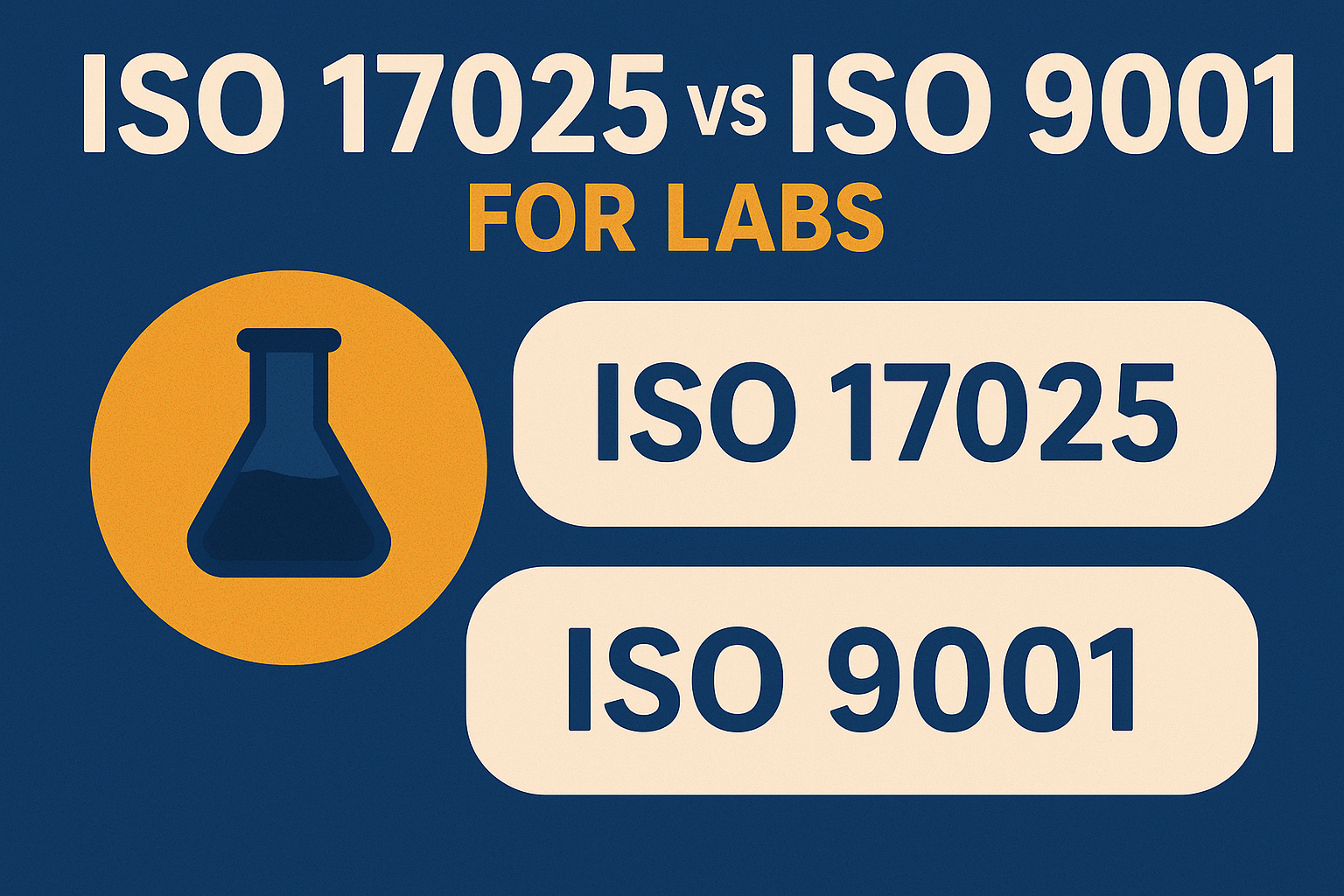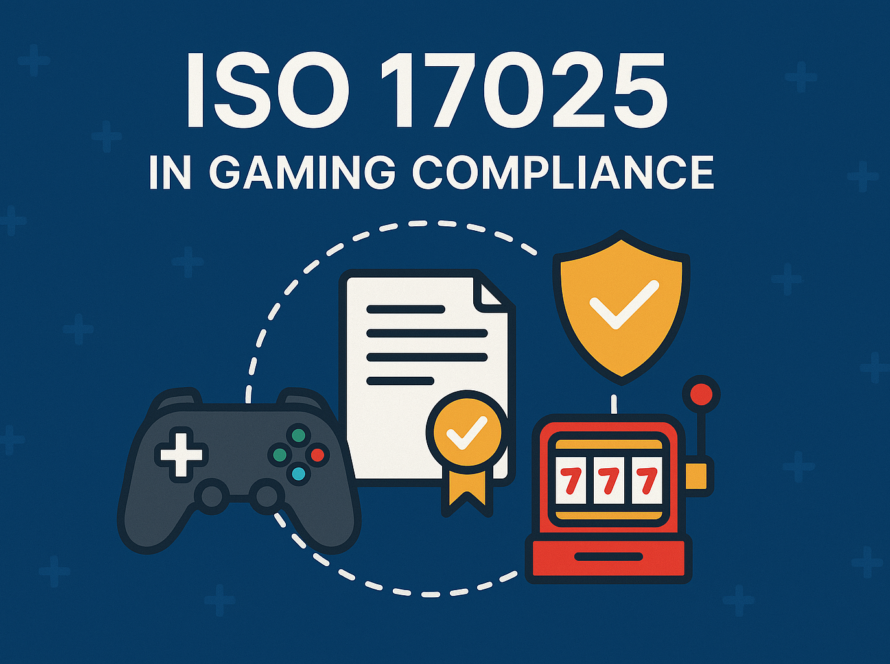When laboratories set out to improve quality and build trust with clients or regulators, two global standards often come into consideration—ISO 17025 and ISO 9001. While both focus on quality, their objectives, requirements, and practical implementation differ significantly. Choosing between them—or deciding to pursue both—requires understanding what each standard delivers and what your lab truly needs.
What Is ISO 9001?
ISO 9001 is a general quality management system (QMS) standard designed for any type of organization. It outlines a framework to improve processes, reduce waste, and increase customer satisfaction. ISO 9001 is built on principles like leadership involvement, continuous improvement, evidence-based decision-making, and risk-based thinking.
It doesn’t apply to any specific industry or technical domain, making it highly flexible. For labs, ISO 9001 can be an excellent foundation to improve internal systems and customer service but may not be sufficient to demonstrate technical competence.
What Is ISO 17025?
Unlike ISO 9001, ISO 17025 is specifically created for testing and calibration laboratories. It includes both quality management requirements and technical requirements such as method validation, equipment calibration, staff competency, measurement uncertainty, and traceability of results.
This standard is often mandated by regulatory bodies and clients who require assurance that lab results are scientifically valid and consistently reliable.
How ISO 17025 and ISO 9001 Differ in Scope
The primary distinction between ISO 17025 and ISO 9001 lies in applicability. ISO 9001 applies across industries — from software to logistics to food processing — focusing on the management system. It is concerned with how the organization works, not necessarily what technical services it provides.
ISO 17025, by contrast, is designed only for labs involved in testing and calibration. It not only demands a functioning quality system but also ensures that test results are scientifically accurate, equipment is properly maintained, and personnel are technically competent.
Technical Focus: What ISO 17025 Covers That ISO 9001 Doesn’t
ISO 17025 goes much deeper into technical operations. It requires:
- Validation and verification of test methods
- Ongoing calibration of instruments
- Measurement uncertainty calculations
- Proficiency testing and inter-lab comparisons
- Detailed training records for technicians and analysts
These elements are crucial for labs that must defend their results in court, regulatory inspections, or scientific publications. ISO 9001 does not assess whether the lab’s results are accurate—it only ensures the process of delivering a service is managed well.
Accreditation Requirements: ISO 17025 and ISO 9001 Compared
Certification and accreditation aren’t the same. ISO 9001 certification demonstrates your lab has implemented a quality management system, verified by a certification body. But it doesn’t prove your test results are accurate.
ISO 17025 accreditation, however, includes technical assessments by an accreditation body such as NABL (India), UKAS (UK), or A2LA (USA). These assessments verify that your lab has the procedures, people, and tools needed to deliver technically sound results.
So while ISO 9001 certification helps your reputation, ISO 17025 accreditation builds scientific credibility.
Documentation and Record-Keeping
Both standards require documentation, internal audits, and records. However, ISO 17025 is more detailed and rigorous:
| Requirement | ISO 9001 | ISO 17025 |
|---|---|---|
| QMS Procedures | Required | Required |
| Technical Records (e.g. calibration logs) | Not required | Mandatory |
| Method Validation | Not covered | Mandatory |
| Equipment Maintenance History | Recommended | Required |
| Staff Competency Logs | Optional | Required |
These documentation practices are essential in regulated sectors like pharmaceuticals, environmental testing, or food safety, where compliance documentation is often reviewed by external agencies.
Audits and Surveillance
Under ISO 9001, audits mostly focus on internal processes, customer feedback, and how well management reviews are conducted. There’s little or no focus on the technical accuracy of services provided.
In ISO 17025 audits, both management and technical aspects are reviewed. Accreditation bodies may witness tests being conducted, evaluate measurement uncertainty calculations, or check if equipment is within calibration limits. Surveillance audits are conducted periodically to ensure continuous compliance.
Can a Laboratory Implement Both Standards?
Yes—and many labs do. Implementing ISO 17025 and ISO 9001 together offers a robust quality and technical framework. ISO 9001 builds a strong QMS foundation, while ISO 17025 ensures scientific reliability. When harmonized, these standards help labs improve overall performance and meet both customer and regulatory demands.
Implementing both doesn’t mean duplicating everything. In fact, ISO 17025 already includes most QMS elements found in ISO 9001. With smart integration, documentation and audit efforts can be streamlined.
Real-World Use Case Example
Let’s consider two labs:
- Lab A provides calibration services for local industries. It wants to improve internal processes but doesn’t need government accreditation. ISO 9001 is likely sufficient.
- Lab B does water quality testing for environmental compliance. Clients require certified reports for legal use. Here, ISO 17025 accreditation is necessary to ensure the lab’s data is accepted by authorities.
Both labs benefit from structured systems, but their compliance goals dictate which standard is more suitable.
Benefits of Choosing the Right Standard
Choosing the right standard affects your market credibility, customer trust, and regulatory standing.
Benefits of ISO 9001:
- Flexible and applicable across sectors
- Focus on customer satisfaction
- Enhances process efficiency
- Easier and faster to implement
Benefits of ISO 17025:
- Recognized by regulators
- Provides evidence of scientific competence
- Mandatory for certain industries (e.g., pharma, food, environment)
- Builds client trust in test results
Final Thoughts on ISO 17025 and ISO 9001
Both ISO 17025 and ISO 9001 are valuable, but they serve distinct purposes. If your lab needs to deliver trusted scientific results and satisfy regulatory authorities, ISO 17025 is non-negotiable. ISO 9001, however, remains a solid foundation for any lab wanting to improve internal systems and customer service.
Labs that seek operational efficiency and scientific reliability should consider adopting both. Together, these standards form a complete framework for technical excellence and business success.
Also read: Why ISO 17025 Accreditation Matters in Gaming Compliance



